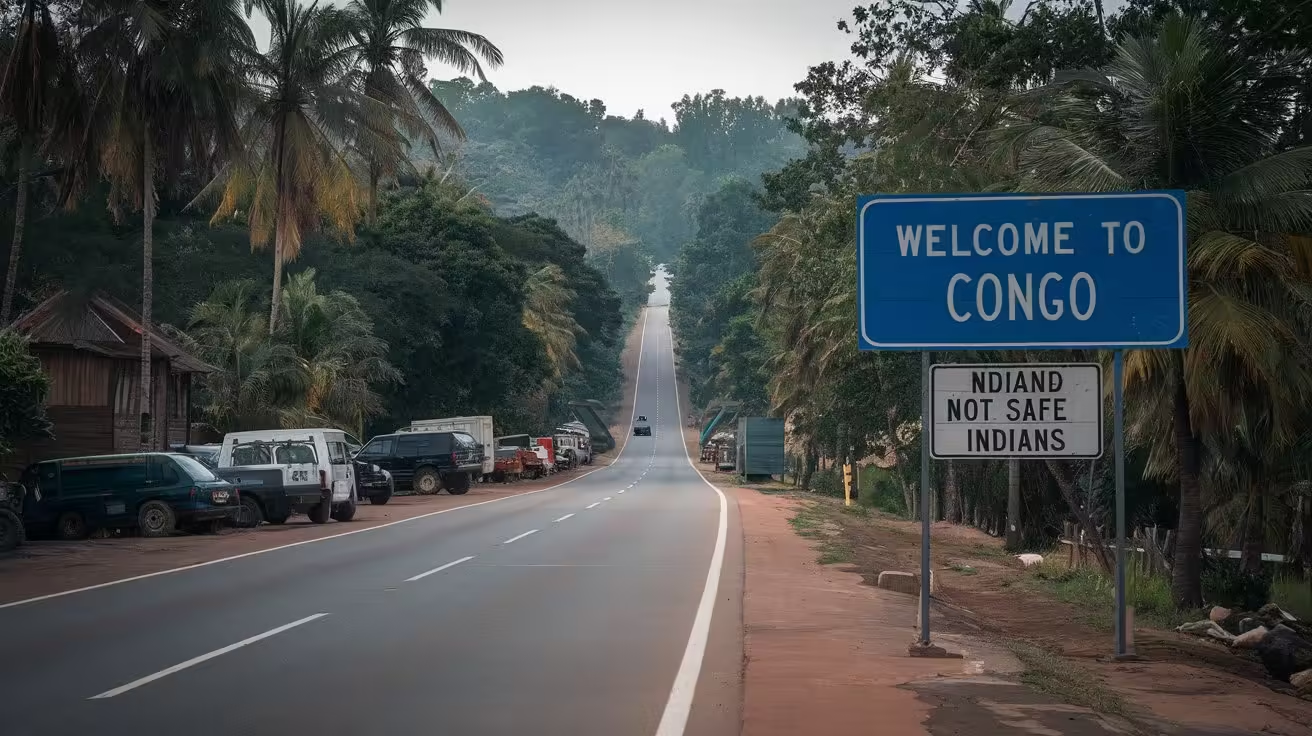Introduction
The Democratic Republic of Congo (DRC) has been facing severe conflict, especially in its eastern regions. The situation has worsened due to the escalating violence caused by rebel groups, leading to mass displacement, loss of lives, and a humanitarian crisis. The Indian government has recently advised its citizens residing in the DRC to move to safer locations due to increasing security threats. But what exactly is happening in the DRC, and why are Indian nationals at risk? Let’s explore the ongoing crisis in detail.
The Current Situation in the Democratic Republic of Congo
The DRC has a long history of conflict, mainly driven by ethnic tensions, political instability, and competition over its vast natural resources, including gold, diamonds, and rare minerals. One of the most dangerous rebel groups currently active in the country is the March 23 Movement (M23). The M23 is primarily based in the eastern part of the DRC and has been accused of carrying out large-scale violence, including attacks on civilians and government forces.
In recent months, the M23 rebels have intensified their offensive, capturing towns and displacing hundreds of thousands of people. Reports indicate that the group has been involved in serious human rights violations, including the execution of civilians, sexual violence, and forced recruitment of child soldiers. The conflict has led to an increased presence of Congolese troops and international peacekeeping forces in an attempt to curb the violence.
The DRC government has also accused neighboring Rwanda of supporting the M23 rebels, leading to rising diplomatic tensions in the region. This has further complicated the efforts to bring peace and stability to the country.
Why Are Indians in Congo at Risk?
Several Indian nationals live and work in the DRC, primarily in industries such as trade, mining, and business. Additionally, India has a strong presence in the United Nations peacekeeping mission in the DRC (MONUSCO), with Indian soldiers deployed in the region to help maintain stability.
However, due to the increasing violence and hostility towards foreigners, the Indian government has issued warnings to its citizens in the DRC. Some key reasons why Indians are at risk include:
Targeted Attacks on Foreign Nationals – In conflict zones, foreign workers and expatriates are often at higher risk of being attacked, kidnapped, or extorted by armed groups. This includes Indian nationals, especially those working in business or mining sectors.
Recent Attacks on Peacekeepers – Indian peacekeepers have been victims of violent attacks in the past. In July 2022, two Indian peacekeepers lost their lives during a violent protest in Butembo, North Kivu province. Such incidents raise concerns about the safety of Indian personnel in the region.
Unstable Security Conditions – The DRC’s weak governance, coupled with ongoing armed conflicts, has made it difficult to ensure the safety of civilians and expatriates. With M23 rebels taking over key regions, the security situation remains highly unpredictable.
Looting and Riots – Due to the ongoing crisis, looting, riots, and mob violence have increased in certain areas. These events pose a direct threat to business owners, including Indian traders.
Indian Government’s Advisory
Given the deteriorating security situation, the Indian government has advised all its citizens in the DRC to move to safer areas. The advisory includes the following recommendations:
Avoid conflict-prone zones – Indians are urged to stay away from eastern regions, particularly North Kivu and South Kivu, where the conflict is most intense.
Stay in touch with the Indian Embassy – The Indian government has asked its citizens to register with the embassy for timely updates and emergency assistance.
Refrain from unnecessary travel – Indian nationals have been advised to avoid non-essential travel within the country, especially near border areas where clashes are frequent.
Seek help if required – Those facing threats or difficulties should immediately reach out to the embassy or local authorities for support.
The Humanitarian Crisis in the DRCe
The ongoing violence in the DRC has created a severe humanitarian crisis. According to reports, over 300,000 people have been displaced in recent months, forced to leave their homes due to fighting. Many are living in refugee camps under harsh conditions, facing food shortages, lack of medical care, and unsafe living environments.
International organizations, including the United Nations, have condemned the human rights violations committed by rebel groups and called for urgent intervention. However, with limited resources and ongoing conflicts, providing relief to affected communities remains a challenge.
Conclusion
The situation in the Democratic Republic of Congo remains highly volatile, with continued violence threatening the safety of civilians and foreigners alike. The Indian government’s advisory serves as an important precautionary measure to ensure the well-being of Indian nationals in the region.
As the crisis unfolds, it is crucial for those in the DRC to stay informed, follow safety guidelines, and take necessary precautions to avoid danger. The international community must also step up efforts to restore peace and provide much-needed humanitarian aid to those affected by the ongoing conflict.
For Indians living in the DRC, moving to a safer location and maintaining regular contact with the Indian embassy could be the best way to ensure their security in these challenging times.
